An Olympic Legacy
10 years on from the 2012 London Olympic and Paralympic Games
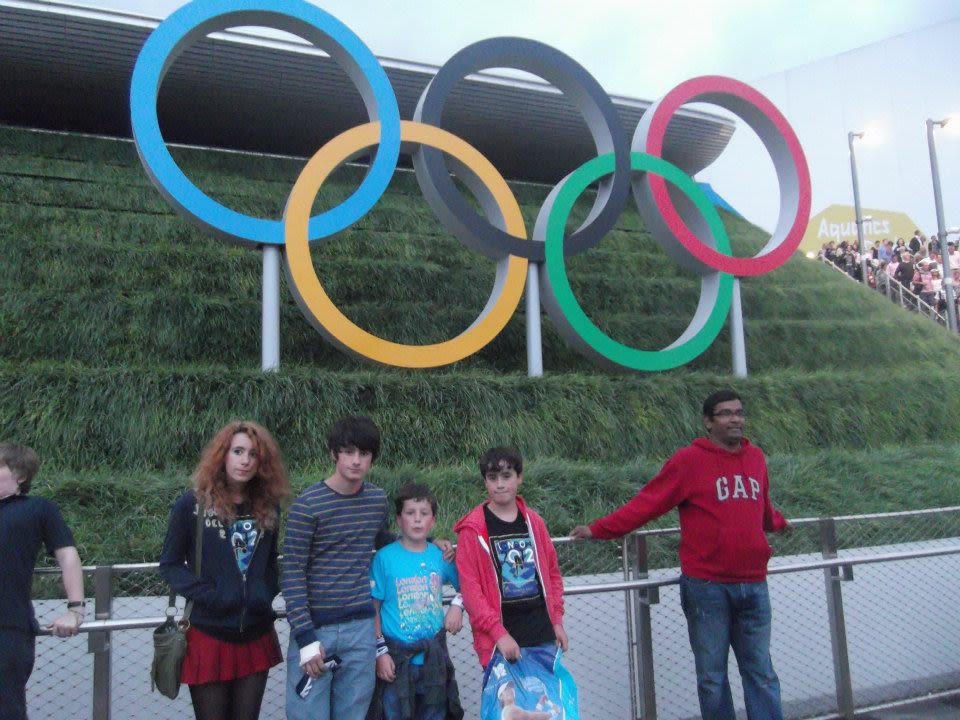
In summer 2012, after nine years and billions of pounds worth of bidding, campaigning and construction, London hosted the Olympic and Paralympic Games.
This was the third time the Olympics had been staged in London, after the city played host in 1908 and 1948.
The graph to the right shows the voting process for the five cities that reached the final stage of allocation: Paris, Madrid, New York, Moscow and, of course, London.
The games were billed as a tournament that would leave a long-lasting legacy - they were the Games that would ‘Inspire a Generation’.
Given the huge over-spending - £2.36 billion by SkySports’ estimate - and how often the word ‘legacy’ was employed in publicity events it was impossible to avoid the motif.
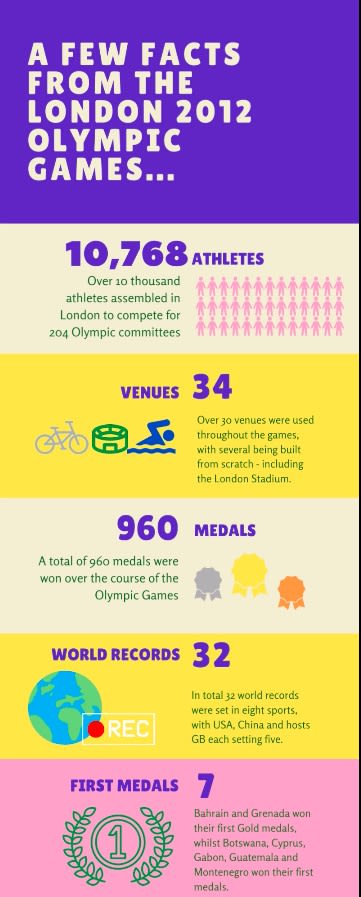
Everything down to the official Olympic and Paralympic mascots were imbued with the idea.
Olympic mascot Wenlock was named for Much Wenlock, a Shropshire town where a precursor for the modern Olympics was held in 1850.
And Mandeville - the Paralympic mascot - was named for Stoke Mandeville, one of the locations for the 1984 Paralympics, where GB won 331 medals.
Even the official song epitomised the idea of lasting long in the memory after the closing ceremony.
The song, performed by Muse, was called 'Survival' - which perfectly encapsulates this aim for London 2012 to survive in the memory for decades to come.
So that begs the question - for all the effort of ensuring that this Olympics would carry a legacy, what actually was it?
In 2007, the Department for Digital, Culture, Media and Sport published a Legacy Plan with Five promises:
1) Make the UK a world-leading sporting nation
2) Transform the heart of East London
3) Inspire a generation of young people to take part in local volunteering, cultural, and physical activity
4) Make the Olympic Park a blueprint for sustainable living
5) Demonstrate the UK is a creative, inclusive, and welcoming place to live in, visit, and for business
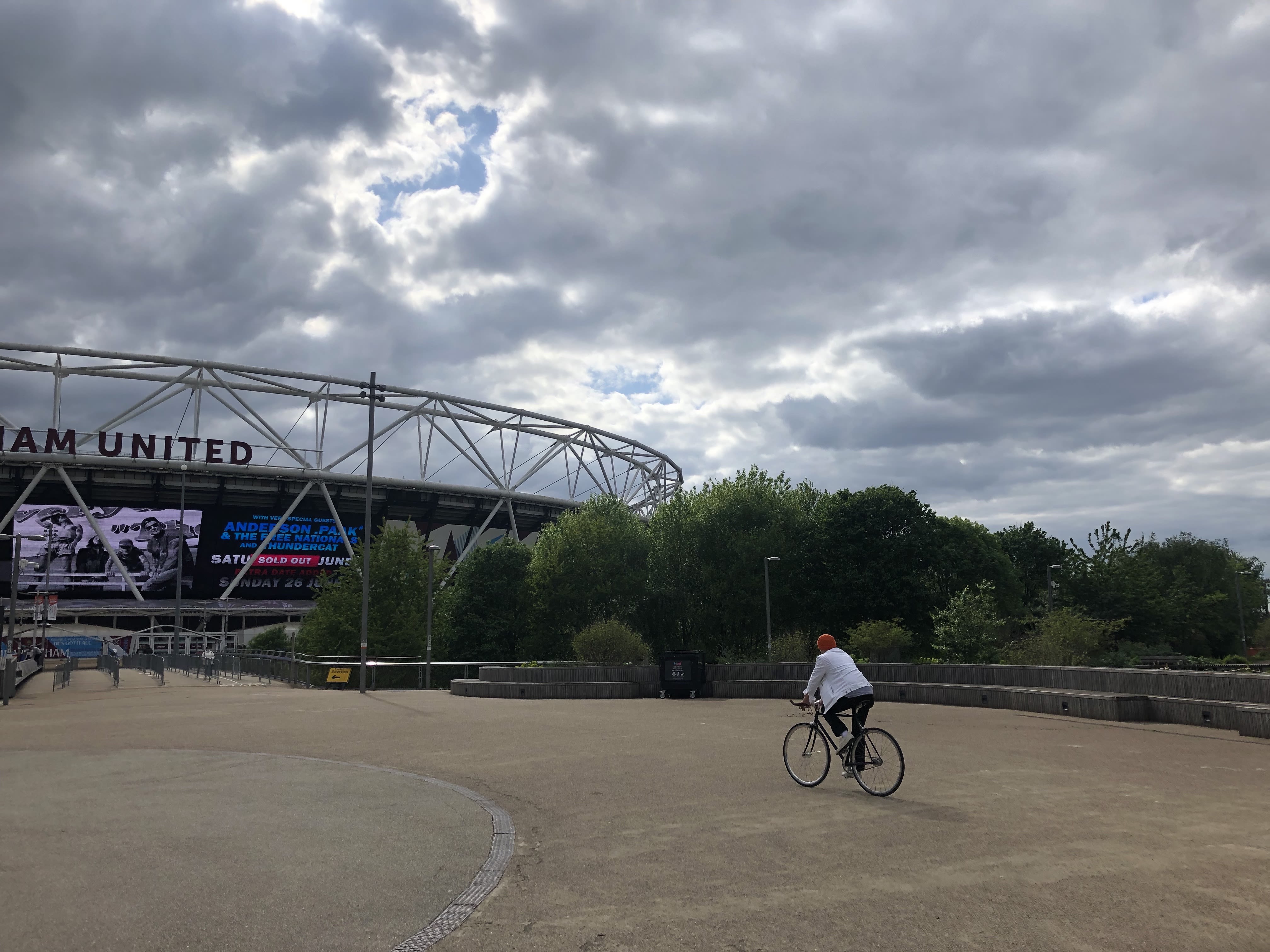
A sporting legacy?
A spokesperson from Team GB said:
"We believe the London 2012 Olympic Games left a strong legacy in holistic terms.
"The main aims of London 2012 were: increasing public participation across multiple sports, the urban transformation of east London and boosting both sustainability and economic opportunities in the city and beyond.
"In sporting terms, Team GB continues to invest in the performance of our Olympic team, and the results subsequent to London 2012 – Rio 2016 and Tokyo 2020 – support the notion that Team GB’s London performance has left a legacy in pure performance terms."
The official anthem of the Olympics: Survival by Muse
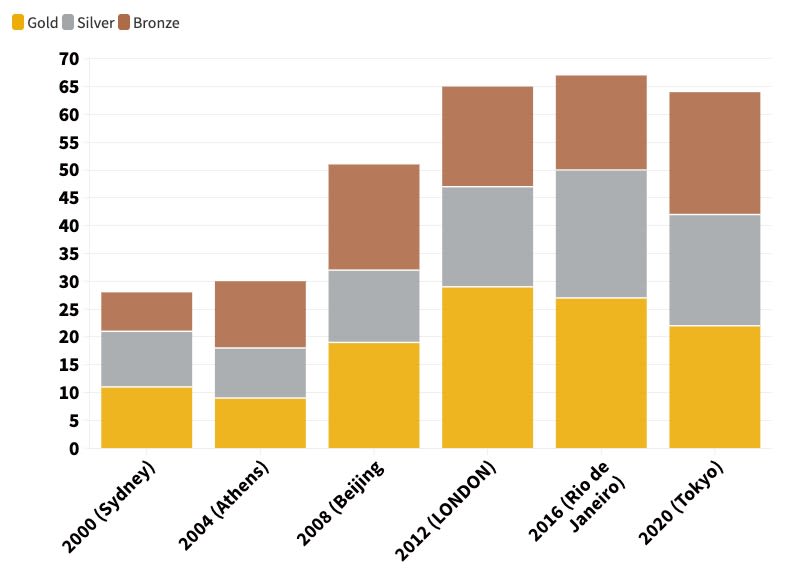
Number of medals won by Team GB at different Olympic Games
Number of medals won by Team GB at different Olympic Games
For example, from the data for Olympic medal hauls between 2000 and 2020 (right), there is a definite increase in success for Team GB since the games was held in London.
Since the 2012 Olympics, the overall medal haul has remained above 60 for three consecutive competitions - which has never been achieved before.
Additionally, Team GB has won 20 or more gold medals for three consecutive Games since 2012, which is another first.
And though Team GB won seven fewer gold medals in Tokyo (22) than in London, they took home two more silvers (20) and four more Bronze medals (29)- their highest bronze haul since 1908.
Whilst the hauls from London, Rio de Janeiro and Tokyo might still be some 80 medals shy of 1908's 146, the continued success underlines the sporting legacy of London 2012 on Olympic culture in this country.
And there is a similar trend in Paralympics GB's success since 2012.
Paralympics GB managed 120 medals in 2012, 147 in 2016 and 124 in 2020.
In fact, the number of medals won in 2016 was the highest since the 1988 games in Seoul, where they managed an impressive 184.
The number of medals won in 2020 was lower than that of 2016, but it was still more than 2012 which still suggests growth in success.
The number of gold medals that Paralympics GB won in 2016 was the most since Seoul (64), the number of silvers (43) in 2012 was the most since Barcelona 1992, and the bronze medal tally in 2020 (45) was their fourth highest total in the tournament's 60-year history.
Paralympics GB has a much richer and more successful history than Team GB, only finishing outside the top three three times, so there was perhaps less of an emphasis on inspiring the next generation of Paralympians.
But it is clear to see that after two relatively lean competitions in Athens and Beijing, the 2012 Paralympics got things back on track.
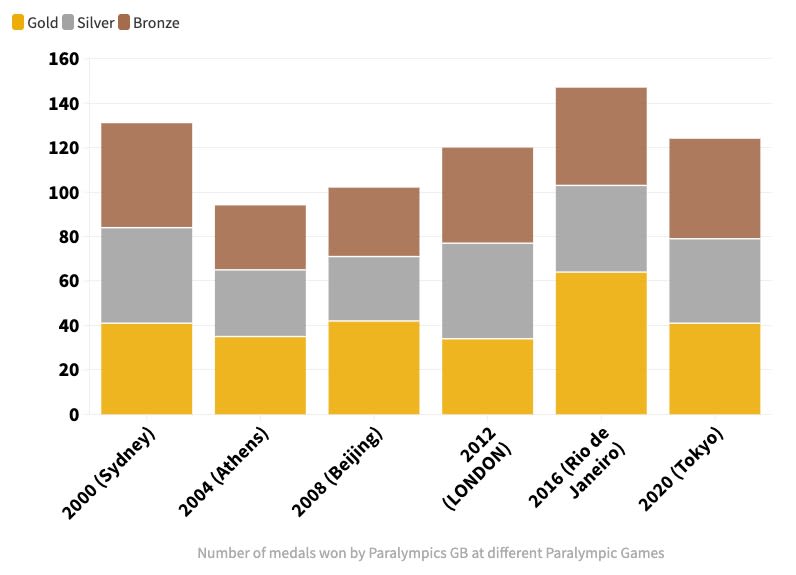
The plan to get a nation on its feet
But it wasn't just a generation of athletes that the Games set out to inspire.
Perhaps more importantly, one of the goals of the 2012 Games was to inspire a generation of people to become physically active.
Sport England is a government branch responsible for growing sports participation and grassroots activity in the country.
A spokesperson said: "In 2008 the government tasked Sport England with increasing the amount of people taking part in sport three times each week by 1 million.
"By 2016, we had raised participation by 1.9 million people."
The data from Sport England shows that since 2015, at least 27,500,000 have done 150 minutes of exercise a week - just short of half the population.
What's more, in the same time period the percentage of 16-24 year olds participating in exercise at least twice a month never dropped below 78%.
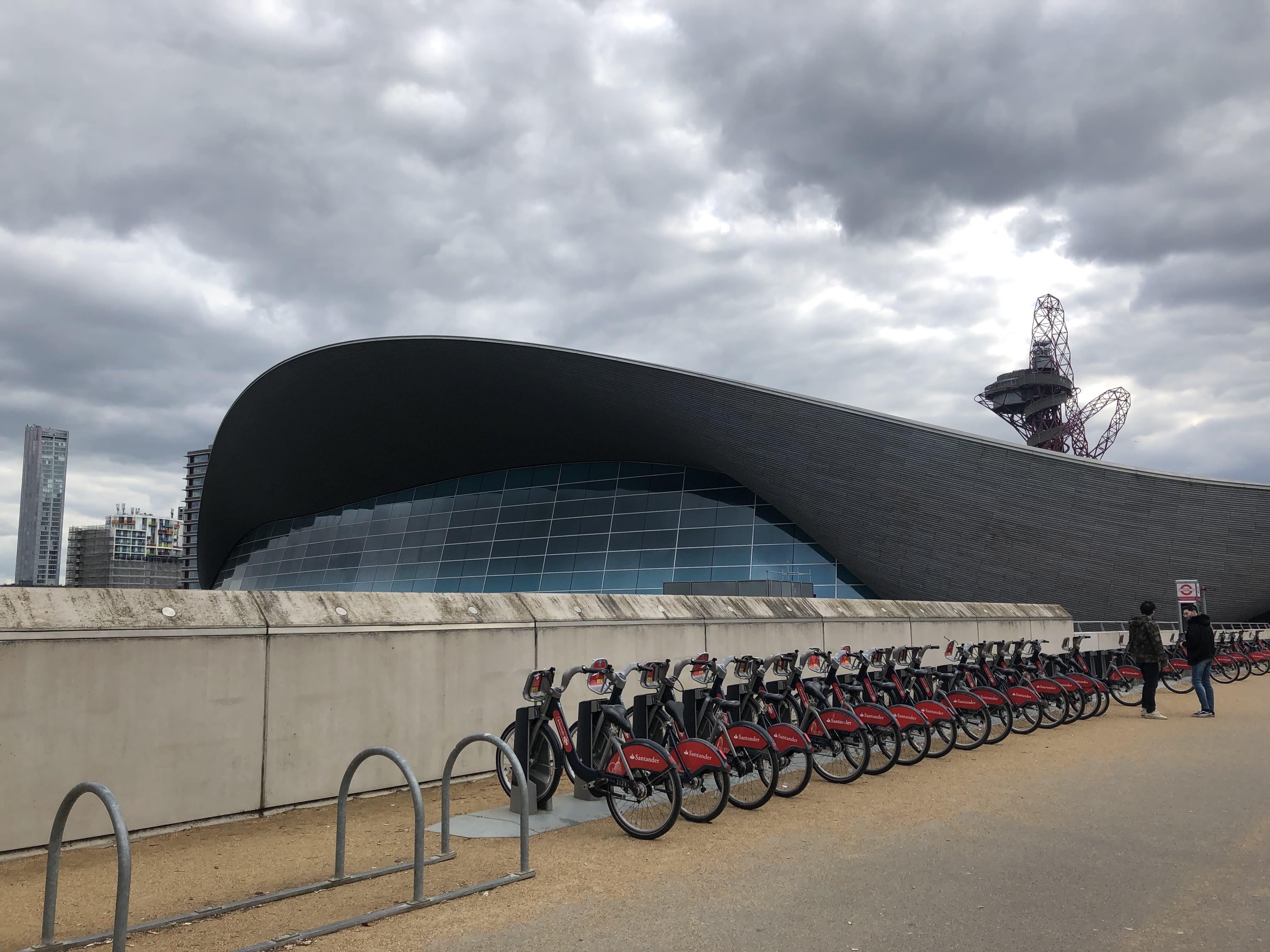
They added: "The survey collects data on over 170,000 people, making it the most comprehensive report on the nations sport and physical activity habits.
"Unfortunately, the data doesn’t go as far back as 2012 for an instant contrast with pre-Olympics, but what we can see is that prior to the pandemic, we had steadily high numbers of people in the UK being active and taking part in regular physical activity.
"A specific breakdown by age can be seen here which shows very high numbers of young people getting involved with sport, which we hope can create a positive trend of people continuing to get involved in sport in the future.
"While being inspired by seeing something such as the Olympics is a good piece of motivation to get out and engage, people need a place to start."
Team GB added: "Team GB isn’t responsible for individual sports or participation in them, but of course we support the aims of getting people into sport and keeping them in sport when they are there.
"In those terms we want to continue to play an active part, through the inspiration of the team’s performance as well as the work of the British Olympic Foundation, which is responsible for encouraging participation and awareness of Olympic sport within the UK"
Sport England's focus on grassroots investment and infrastructural change ties in perfectly with the intentions of the British Olympic Foundation, and as such they are perfectly placed to comment on the impact of the Games on sporting uptake in the country.
And although the data does not stretch back to 2012, it would appear that the London Olympics certainly achieved its goal of encouraging young people to be physically active on a regular basis.
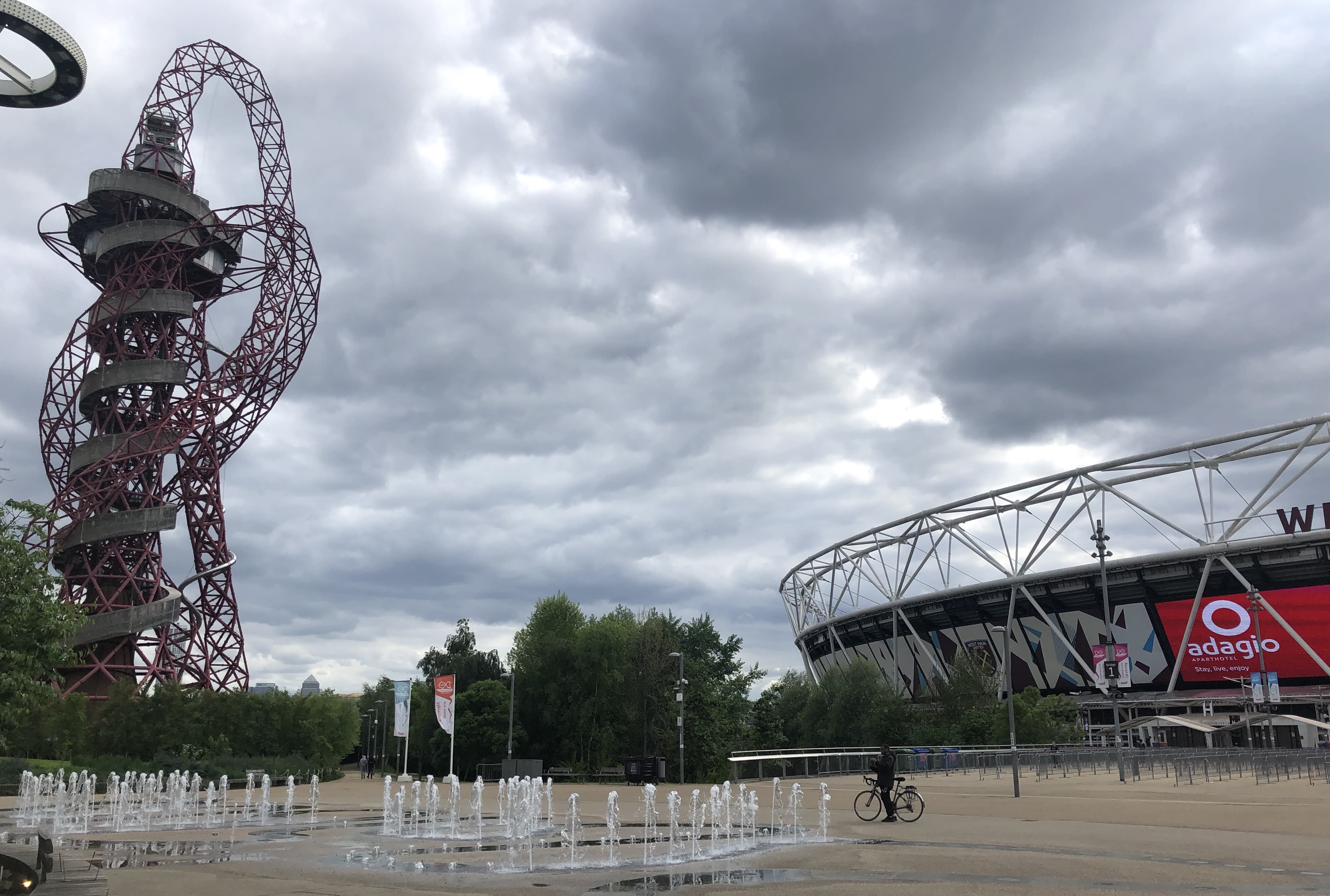
Off the field
According to Lyn Garner, Chief Executive of the London Legacy Development Corporation, the Olympic legacy was all about creating something that would be left behind - both on and off the track, pool or velodrome.
She said: "The foundations for London 2012 were built on legacy.
"A decade on from that wonderful summer of sport so much has been delivered on in and around Queen Elizabeth Olympic Park.
"We welcome 6 million visitors a year to world-class sport and entertainment, thousands of jobs and homes have been created and the area is thriving."
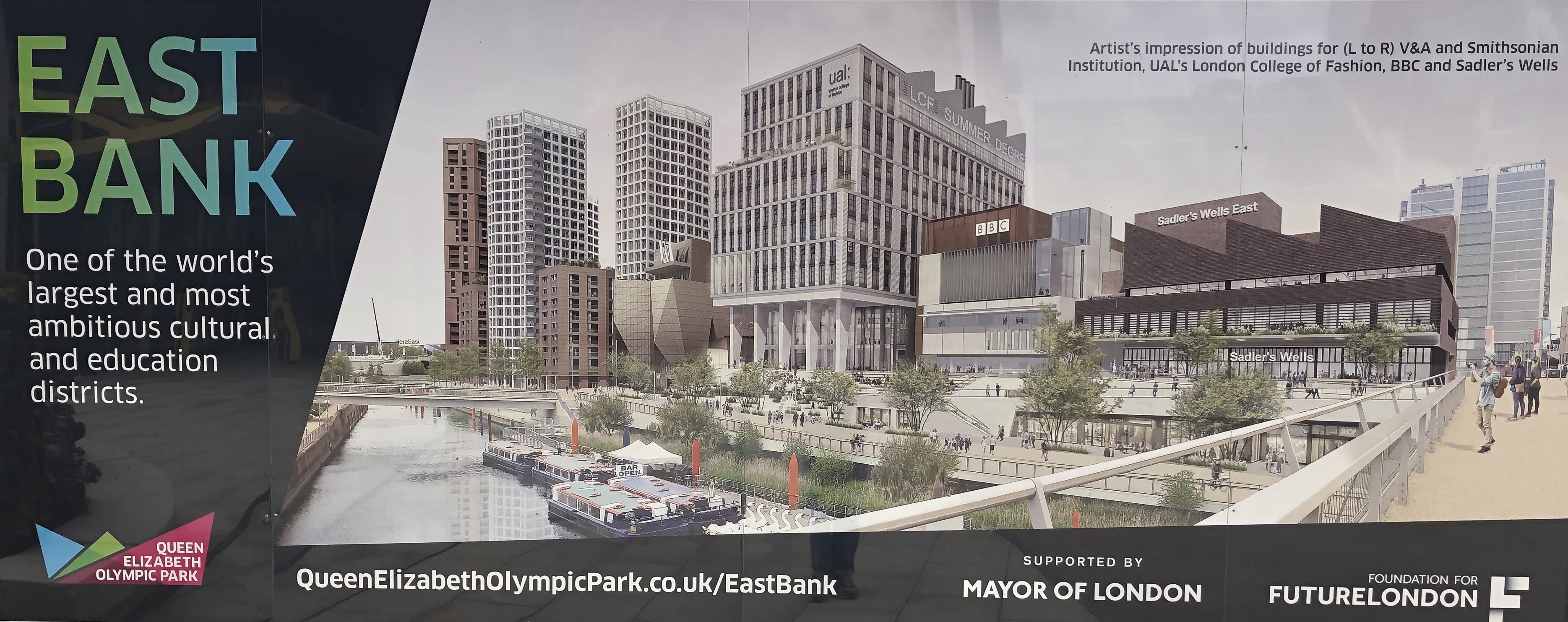
After the Paralympic Closing Ceremony, The Olympic Park underwent a 15 month transformation to become what we now know as The Queen Elizabeth Olympic Park
The transformation took two million work hours from 450 Park Champions, and is now home to 13,000 trees set in 30 acres of land with 6.5 km of waterways.
Eight of the venues constructed for the Games have re-opened in different capacities.
The Olympic Stadium is now home to West Ham United, as well as being the main venue for British athletics meets in London.
The Aquatics Centre is open to the public, and the Velodrome is used by Newham Council for things like counting votes in General Elections.
According to the park's website, it has also hosted over 125 major sporting and cultural events, including Major League Baseball and live concerts from the likes of the Red Hot Chilli Peppers.
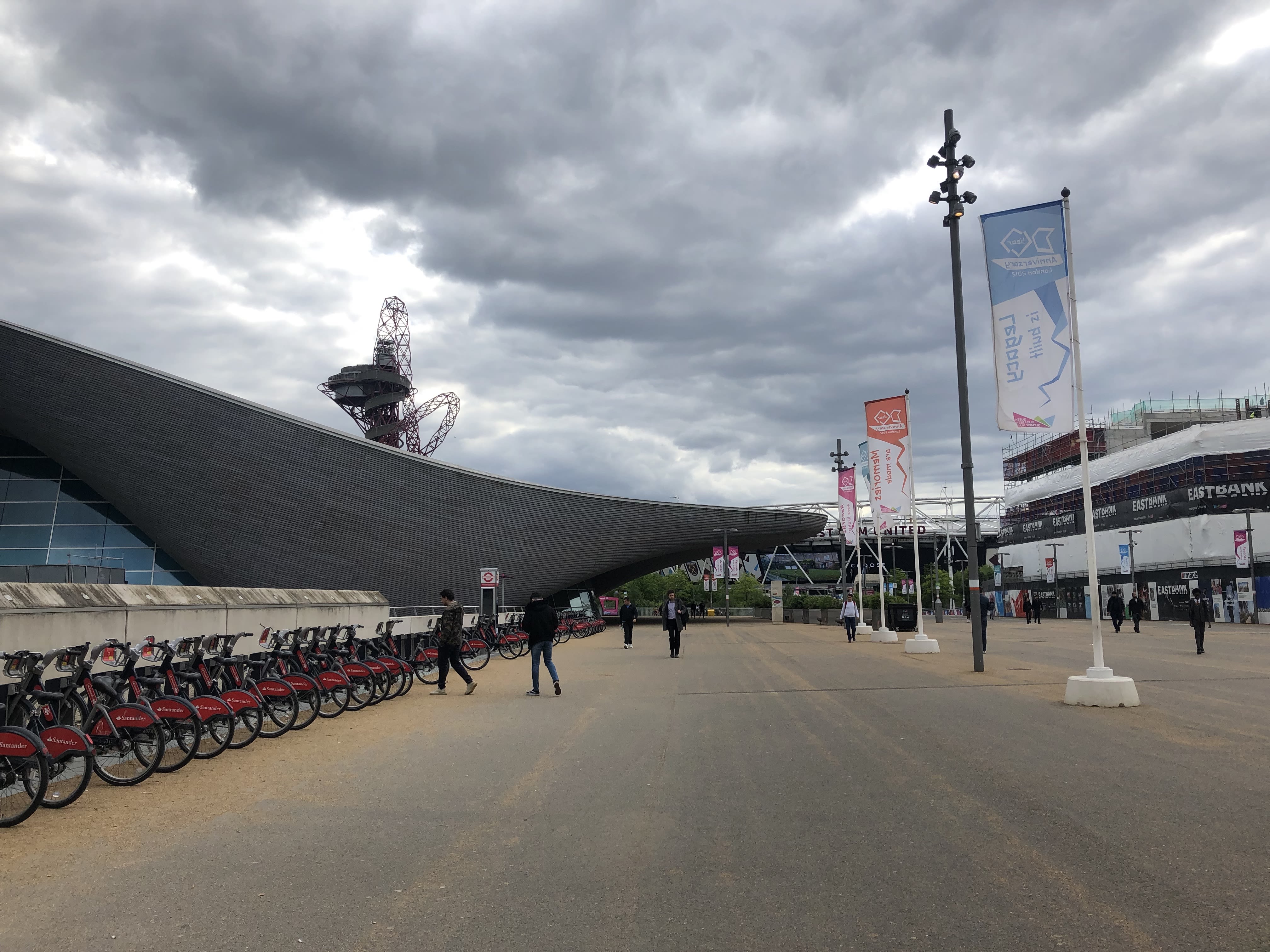
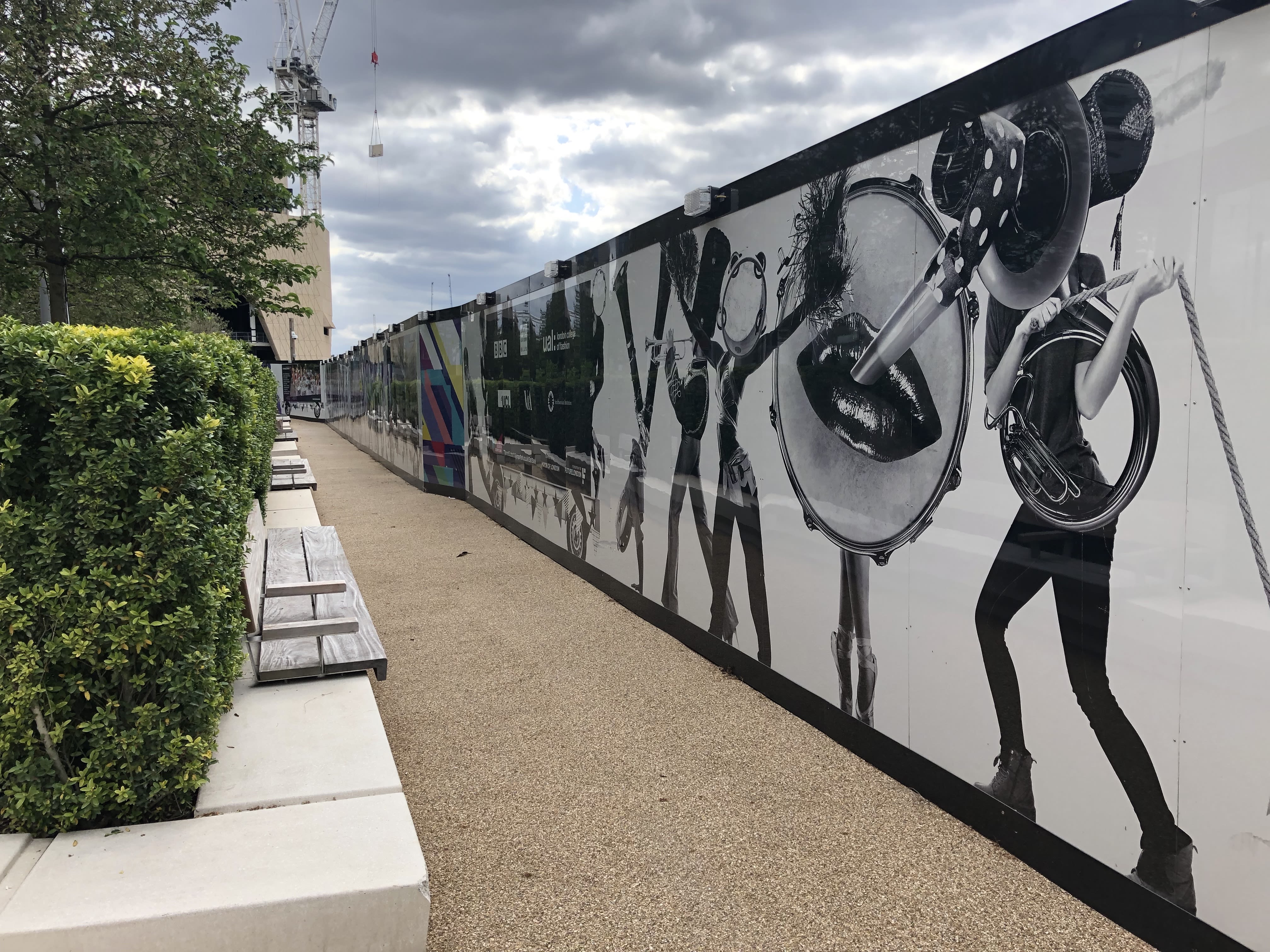
But it's about more than just turning an Olympic park into a tourist attraction.
The real impact of the Games was a significant infrastructural investment into the Stratford and Hackney areas surrounding the park.
According to Queen Elizabeth Olympic Park, 110,000 jobs have been created in east London since the Olympics, and the East Bank development programme has generated £1.5 billion for the local economy.
Team GB said: "Undoubtedly, the transformation and regeneration of the Stratford and Hackney areas of east London has helped bring new communities together, delivered social change and encouraged individuals to volunteer their time and skills for the benefit of others.
"Queen Elizabeth Olympic Park has become a dynamic new heart for East London and played a central part in the transformation of this area of the city.
"All the permanent Games venues in the park are operational, generating jobs for local people, staging high-profile events and attracting more than six million visitors a year."
My Family And I At The Olympic Park In 2012...
... My Visit To The Queen Elizabeth Olympic Park 10 Years Later.
